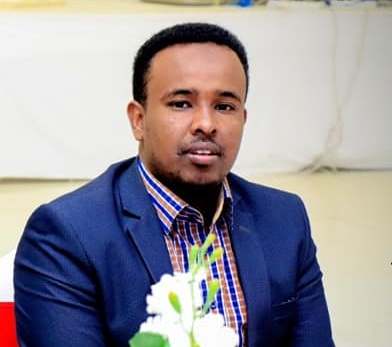
School of Pharmacy
About the School
Vision
The school of pharmacy at Amoud university, is committed to ensuring an educational environment that fosters progressive development in teaching, learning, training and research, to provide the health care system with pharmacists capable of meeting the challenges of the rapidly evolving pharmacy profession, and to establish an interactive partnership with the pharmaceutical industry and the community.
Mission
The school of pharmacy at Amoud university, seeks to be distinguished internationally by providing up-to–date high quality pharmacy education and biomedical research, as well as by fostering continuing professional development and community involvement.
Objectives
One of the important concern of the school of pharmacy is to provide the society with skilled pharmacy graduates who are capable of practicing in all modern pharmaceutical fields and dedicated to the betterment of health service.
This can only be achieved by the approach used by the faculty of pharmacy through offering an educational philosophy that promotes a combination of critical thinking and practical application.
Mission
Most subjects are taught with a variety of methods including lectures, projected materials with lecturers’ notes presented to the students, practical work and seminars.
- Problem based learning.
- Self directed learning.
- Group dynamics.
- Team work.
- Early practical training at all levels of health services (individuals, families and communities)
- Staff training and development.
History & Background
It was established in the academic year 2010-2011 with the aim of producing qualified pharmacists who would contribute to the post war recovery of Somaliland pharmaceutical system. Its academic program is designed for four years of study leading to the degree of Bachelor of pharmacy. The pharmaceutical sector has been the least developed area in Somaliland and Somalia. Prior to the civil war, the government was unable to procure drugs. Drug supplies were largely dependent on foreign aid. Today, drugs are brought to the country mainly through two channels: through the international aid organizations or through the private sector. Pharmaceuticals have become a big business and pharmacy shops have mushroomed in every corner of all towns and cities. Although private pharmacies supply remote areas with much-needed drugs, the quality of the drugs sold in those pharmacies has been questioned. In addition, most of the drugs used are suspected to be generic, thus putting the already vulnerable patients to great risk. In order to find a solution for this problem the School of Pharmacy was established.
School Stats
Enrolled Students
Graduated Pharmacists
Academic Staff
School Programs
Bachelor of Pharmacy
Its academic program is designed for four years of study leading to the degree of Bachelor of pharmacy. The pharmaceutical sector has been the least developed area in Somaliland and Somalia. Prior to the civil war, the government was unable to procure drugs. Drug supplies were largely dependent on foreign aid. Today, drugs are brought to the country mainly through two channels: through the international aid organizations or through the private sector. Pharmaceuticals have become a big business and pharmacy shops have mushroomed in every corner of all towns and cities. Although private pharmacies supply remote areas with much-needed drugs, the quality of the drugs sold in those pharmacies has been questioned. In addition, most of the drugs used are suspected to be generic, thus putting the already vulnerable patients to great risk. In order to find a solution for this problem the School of Pharmacy was established.
School Management Team


Abdirisaq Jirde
Associate Dean, School of Pharmacy
- Phone:+252 634 455 268
- Email:4455268@amoud.edu.so

Contact us
Address
- AUCHS Main Campus, Near Rays Hotel, Borama.
Emails
- pharmacyschool@amoud.edu.so
- auchs@amoud.edu.so
Phone
- +252 634 459 222
- +252 634 455 268
- +252 634 557 400
